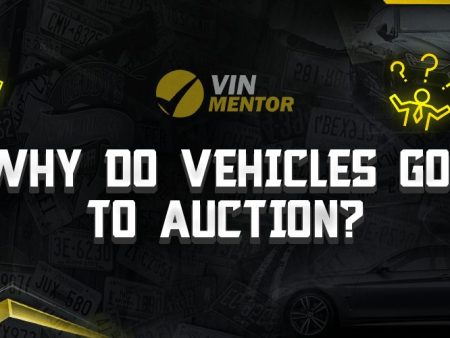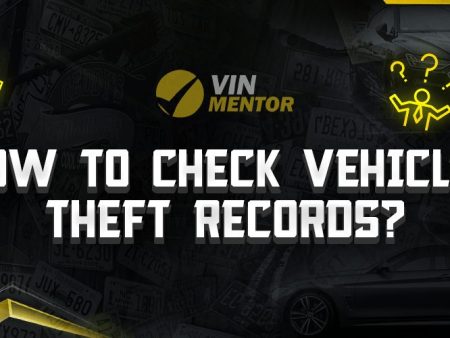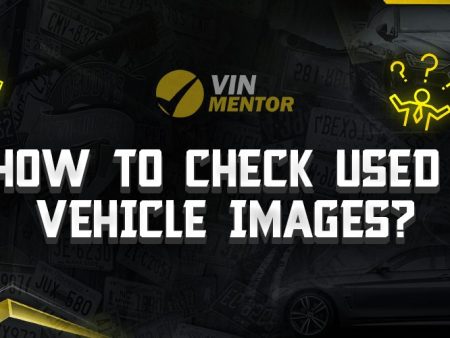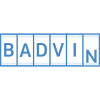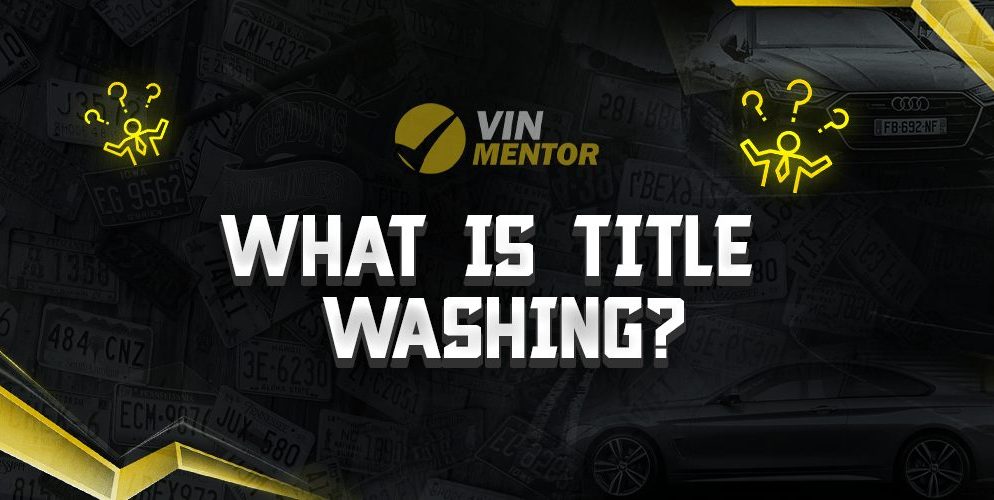
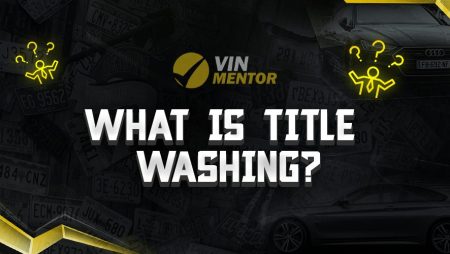
A car title should be an exciting document. It proves that you own the car; however, there is a practice called title washing that can throw a wrench in the plans. Much like VIN cloning, title washing is an illegal practice where scammers try to clean up the title, removing or altering critical pieces of information. Here’s all you need to know about title washing so you can avoid falling victim to this scam.
Key Takeaways
- Title washing is an illegal practice where scammers alter or remove crucial information from a car’s title, such as liens, title brands, accident history, or evidence of theft or criminal activity.
- A car title is a legal document issued by the state government that proves ownership of the vehicle and contains information like the VIN, make, model, year, owner’s details, odometer reading, and signatures.
- Title washing can occur through various methods, including moving a car to another state, applying for a new title without disclosing issues, or directly altering the existing title.
- Buyers should be concerned about title washing because it can lead to purchasing a car with hidden damage or other issues that significantly impact its value or usability.
- To avoid falling victim to title washing scams, buyers should carefully verify the title’s authenticity, consider obtaining a vehicle history report, and be cautious of deals that seem too good to be true.
So What is a Car Title?
A car title is proof of ownership of a car. It’s a legal document that the state government issues to the car’s owner. If you still have a loan, the bank will hold the title until the car is fully paid off because they are technically the owner. If you own the car, you hold the title, and it will include information about the car, including, but not limited to:
- VIN
- Make, model, and year,
- Owner’s details (name and address)
- Odometer reading at the issue date
- Signatures
This information is officially tracked, so sometimes, people will try to remove it illegally if they want to move a car under the radar.
What is Title Washing?
Title washing is when a scammer takes the official information listed on the title of a car and changes it for their benefit. There are several reasons why a person may do this. Perhaps they want to remove information that could potentially reduce its value, like liens against the car, title brands, accident history, and more.
They could also remove any evidence that a car was stolen or involved in a crime. Title washing is also called title fraud, and so when you are purchasing a used car, even if the title appears to be clean, it may not be, so it’s important to be careful. If it comes out that the car you purchased was stolen or involved in criminal activity, you could lose it and still be responsible for the payments.
How Does Title Washing Happen?
Title washing can be done in several different ways, including:
- Moving a car to a different state to avoid title-branding regulations. They vary, so if it was deemed a total loss in one state, it may not be recognized as such in another.
- Getting a new title. Scammers can simply apply for a new title without sharing the issues the car faced.
- Changing the existing title and removing information that could impact the car’s ability to be sold and its sales price.
All of these methods are illegal, but title washing can be difficult to detect if you don’t know what you are looking for.
Why Should You Worry About Title Washing?
Title washing never works in the buyer’s favor, so you’ll end up paying more for a car that could have significant issues with it. If the detail feels too good to be true, then it probably is.
Title washing can hide damage to the car, so if it was involved in a serious accident, you won’t know. Even if they fixed it, it’s likely the car is hiding long-term damage. You may not have to deal with it immediately, but down the road, you’ll learn what the issues were.
Conclusion
Title washing is an illegal practice where scammers remove or alter information on a car’s title. This information could hide damage, liens, and more, all of which will impact the value of the car. If the car has been used in criminal activity or was stolen, you could even lose it, so it’s important to verify the title has not been washed before buying a used car.
FAQ
What is the difference between title washing and VIN cloning?
The difference between title washing and VIN cloning is that title washing involves altering or removing information on a car’s title to hide its history, such as damage, liens, or involvement in criminal activity. VIN cloning, on the other hand, involves using a legitimate VIN from one car and placing it on another, often stolen or salvaged car, to make it appear legitimate and sell it to unsuspecting buyers.
How can I verify if a car’s title has been washed before purchasing a used car?
To verify if a car’s title has been washed before purchasing a used car, you can obtain a vehicle history report from a reputable source, such as Carfax or AutoCheck. This report will provide details on the car’s history, including any title discrepancies or potential issues that may indicate title washing.
Are there any legal consequences for unknowingly purchasing a car with a washed title?
Unknowingly purchasing a car with a washed title can lead to legal consequences, such as losing the car if it is discovered to be stolen or involved in criminal activity. You may also be responsible for any outstanding debts or fees associated with the car, even though you were not aware of the issues when you purchased it.
What steps can I take to protect myself from falling victim to title washing scams?
To protect yourself from falling victim to title washing scams, consider the following steps:
- Obtain a vehicle history report to check for any discrepancies or issues with the car’s title.
- Inspect the car’s title closely for any signs of tampering or alteration.
- Be cautious of deals that seem too good to be true, as they may be an indicator of a potential scam.
- Purchase used cars from reputable dealers or sellers with a proven history of transparency and integrity.
Can a washed title be reversed or corrected if discovered after the purchase of a used car?
If a washed title is discovered after the purchase of a used car, it may be possible to reverse or correct the title through legal means. This process typically involves working with the Department of Motor Vehicles (DMV) and providing the necessary documentation to prove the true history of the car. In some cases, legal action against the seller who provided the washed title may also be necessary to recover damages or losses incurred as a result of the fraudulent transaction.
